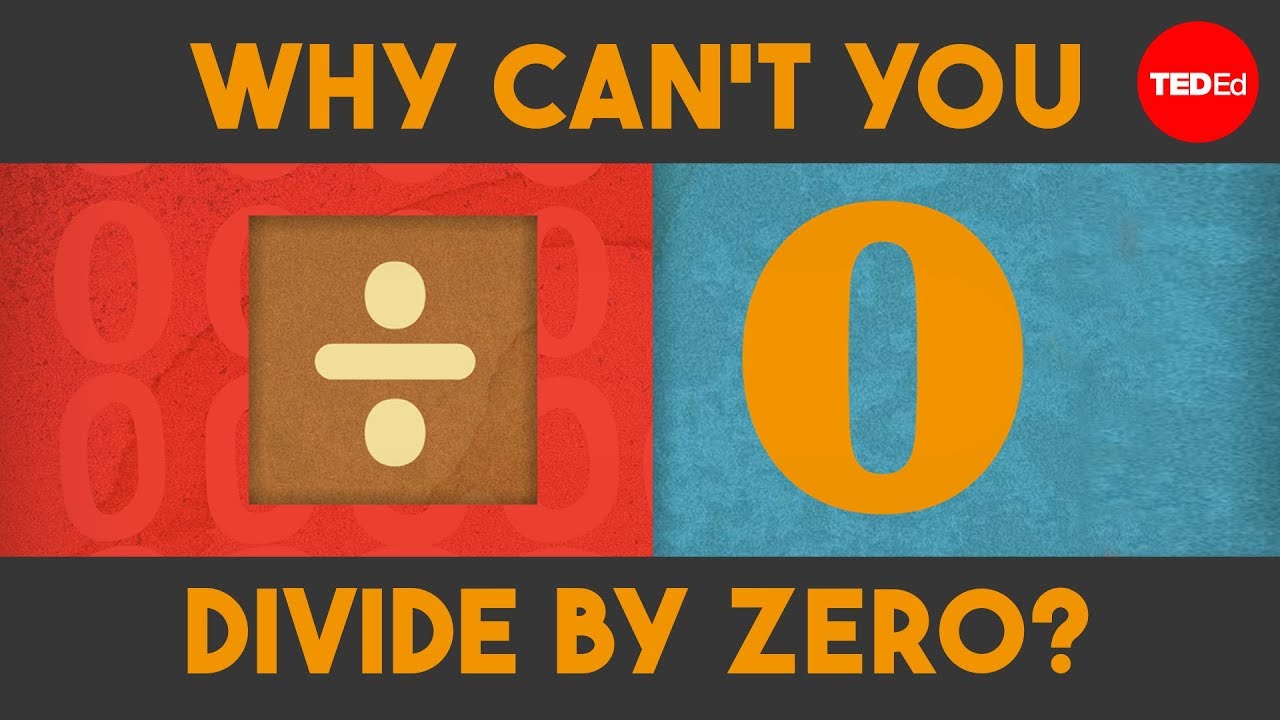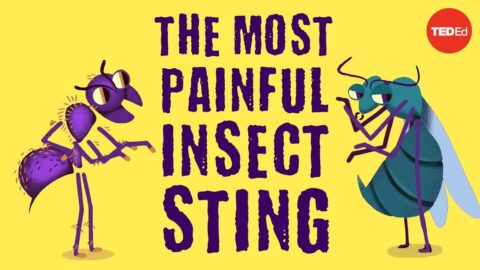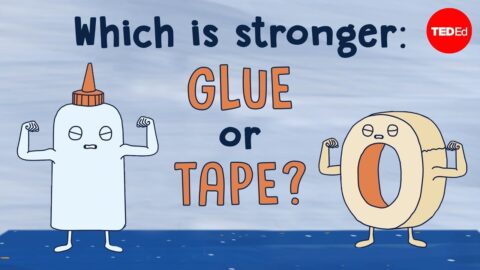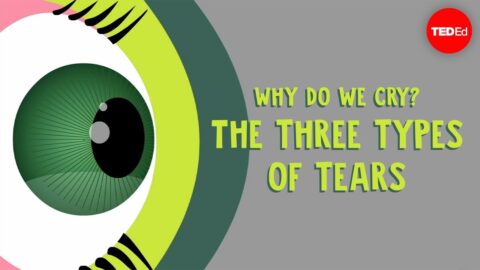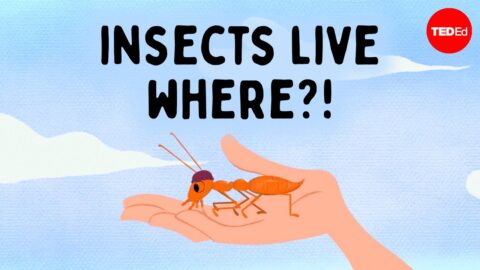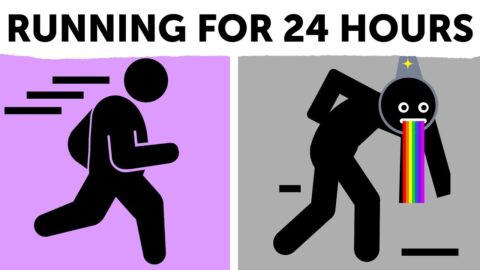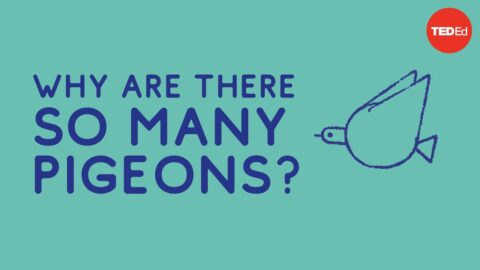In the world of math,
No mundo da matemática,
many strange results are possible when we change the rules.
muitos resultados estranhos são possíveis quando mudamos as regras.
But there's one rule that most of us have been warned not to break:
Mas há uma regra que a maioria de nós foi avisada para não quebrar:
don't divide by zero.
não divida por zero.
How can the simple combination of an everyday number
Como pode a simples combinação de um número cotidiano
and a basic operation cause such problems?
e uma operação básica causa tais problemas?
Normally, dividing by smaller and smaller numbers
Normalmente, a divisão por números cada vez menores
gives you bigger and bigger answers.
lhe dá respostas cada vez maiores.
Ten divided by two is five,
Dez dividido por dois é cinco,
by one is ten,
por um é dez,
by one-millionth is 10 million,
por um milionésimo é 10 milhões,
and so on.
e assim por diante.
So it seems like if you divide by numbers
Então parece que se você dividir por números
that keep shrinking all the way down to zero,
que continuam diminuindo até chegar a zero,
the answer will grow to the largest thing possible.
a resposta crescerá até a maior coisa possível.
Then, isn't the answer to 10 divided by zero actually infinity?
Então, a resposta para 10 dividido por zero não é na verdade infinito?
That may sound plausible.
Isso pode parecer plausível.
But all we really know is that if we divide 10
Mas tudo o que realmente sabemos é que se dividirmos 10
by a number that tends towards zero,
por um número que tende a zero,
the answer tends towards infinity.
a resposta tende ao infinito.
And that's not the same thing as saying that 10 divided by zero
E isso não é a mesma coisa que dizer que 10 dividido por zero
is equal to infinity.
é igual ao infinito.
Why not?
Por que não?
Well, let's take a closer look at what division really means.
Bem, vamos dar uma olhada mais de perto no que a divisão realmente significa.
Ten divided by two could mean,
Dez dividido por dois pode significar,
"How many times must we add two together to make 10,
"Quantas vezes devemos somar dois para formar 10,
or, “two times what equals 10?
ou “duas vezes o que é igual a 10?
Dividing by a number is essentially the reverse of multiplying by it,
Dividir por um número é essencialmente o inverso de multiplicar por ele,
in the following way:
da seguinte forma:
if we multiply any number by a given number x,
se multiplicarmos qualquer número por um dado número x,
we can ask if there's a new number we can multiply by afterwards
podemos perguntar se há um novo número que podemos multiplicar depois
to get back to where we started.
para voltar ao ponto de partida.
If there is, the new number is called the multiplicative inverse of x.
Se houver, o novo número é chamado de inverso multiplicativo de x.
For example, if you multiply three by two to get six,
Por exemplo, se você multiplicar três por dois para obter seis,
you can then multiply by one-half to get back to three.
você pode então multiplicar por meio para voltar a três.
So the multiplicative inverse of two is one-half,
Então o inverso multiplicativo de dois é um meio,
and the multiplicative inverse of 10 is one-tenth.
e o inverso multiplicativo de 10 é um décimo.
As you might notice, the product of any number and its multiplicative inverse
Como você pode notar, o produto de qualquer número e seu inverso multiplicativo
is always one.
é sempre um.
If we want to divide by zero,
Se quisermos dividir por zero,
we need to find its multiplicative inverse,
precisamos encontrar seu inverso multiplicativo,
which should be one over zero.
que deve ser um sobre zero.
This would have to be such a number that multiplying it by zero would give one.
Esse número teria que ser tal que, multiplicando-o por zero, resultaria em um.
But because anything multiplied by zero is still zero,
Mas como tudo multiplicado por zero continua sendo zero,
such a number is impossible,
tal número é impossível,
so zero has no multiplicative inverse.
então zero não tem inverso multiplicativo.
Does that really settle things, though?
Mas isso realmente resolve as coisas?
After all, mathematicians have broken rules before.
Afinal, matemáticos já quebraram regras antes.
For example, for a long time,
Por exemplo, durante muito tempo,
there was no such thing as taking the square root of negative numbers.
não existia tal coisa como tirar a raiz quadrada de números negativos.
But then mathematicians defined the square root of negative one
Mas então os matemáticos definiram a raiz quadrada de menos um
as a new number called i,
como um novo número chamado i,
opening up a whole new mathematical world of complex numbers.
abrindo um mundo matemático totalmente novo de números complexos.
So if they can do that,
Então se eles podem fazer isso,
couldn't we just make up a new rule,
não poderíamos simplesmente inventar uma nova regra,
say, that the symbol infinity means one over zero,
digamos que o símbolo infinito significa um sobre zero,
and see what happens?
e ver o que acontece?
Let's try it,
Vamos tentar,
imagining we don't know anything about infinity already.
imaginando que ainda não sabemos nada sobre o infinito.
Based on the definition of a multiplicative inverse,
Com base na definição de um inverso multiplicativo,
zero times infinity must be equal to one.
zero vezes infinito deve ser igual a um.
That means zero times infinity plus zero times infinity should equal two.
Isso significa que zero vezes infinito mais zero vezes infinito deve ser igual a dois.
Now, by the distributive property,
Agora, pela propriedade distributiva,
the left side of the equation can be rearranged
o lado esquerdo da equação pode ser reorganizado
to zero plus zero times infinity.
até zero mais zero vezes infinito.
And since zero plus zero is definitely zero,
E como zero mais zero é definitivamente zero,
that reduces down to zero times infinity.
que se reduz a zero vezes infinito.
Unfortunately, we've already defined this as equal to one,
Infelizmente, já definimos isso como igual a um,
while the other side of the equation is still telling us it's equal to two.
enquanto o outro lado da equação ainda nos diz que é igual a dois.
So, one equals two.
Então, um é igual a dois.
Oddly enough, that's not necessarily wrong
Estranhamente, isso não é necessariamente errado
it's just not true in our normal world of numbers.
isso simplesmente não é verdade em nosso mundo normal de números.
There's still a way it could be mathematically valid,
Ainda há uma maneira de ser matematicamente válido,
if one, two, and every other number were equal to zero.
se um, dois e todos os outros números fossem iguais a zero.
But having infinity equal to zero
Mas tendo o infinito igual a zero
is ultimately not all that useful to mathematicians, or anyone else.
não é, em última análise, tão útil para matemáticos ou qualquer outra pessoa.
There actually is something called the Riemann sphere
Na verdade, existe algo chamado esfera de Riemann
that involves dividing by zero by a different method,
que envolve dividir por zero por um método diferente,
but that's a story for another day.
mas essa é uma história para outro dia.
In the meantime, dividing by zero in the most obvious way
Enquanto isso, dividindo por zero da maneira mais óbvia
doesn't work out so great.
não funciona muito bem.
But that shouldn't stop us from living dangerously
Mas isso não deve nos impedir de viver perigosamente
and experimenting with breaking mathematical rules
e experimentando quebrar regras matemáticas
to see if we can invent fun, new worlds to explore.
para ver se conseguimos inventar mundos novos e divertidos para explorar.
Legenda Anterior
Pronunciar Palavra
Traduzir Frase Atual
Pausar / Play
Aumentar Fonte Legenda
Próxima Legenda
Pronunciar Frase
Dois Cliques para Salvar Palavra
Desativar Legenda / Ativar Legenda
Diminuir Fonte Legenda

